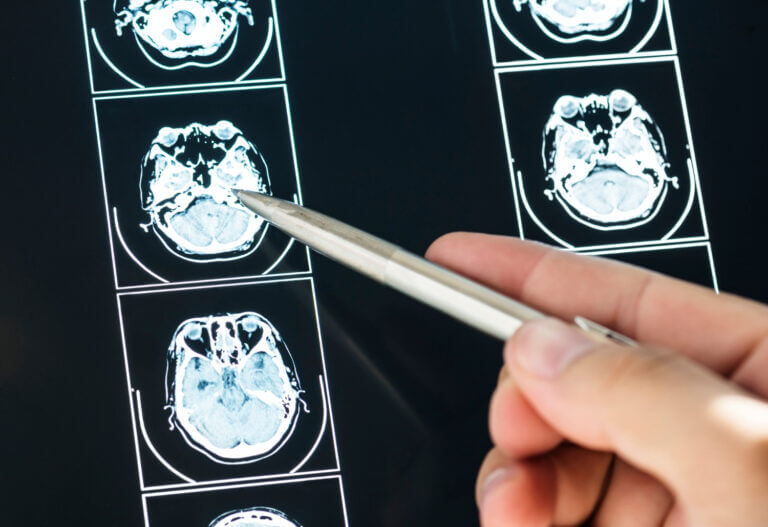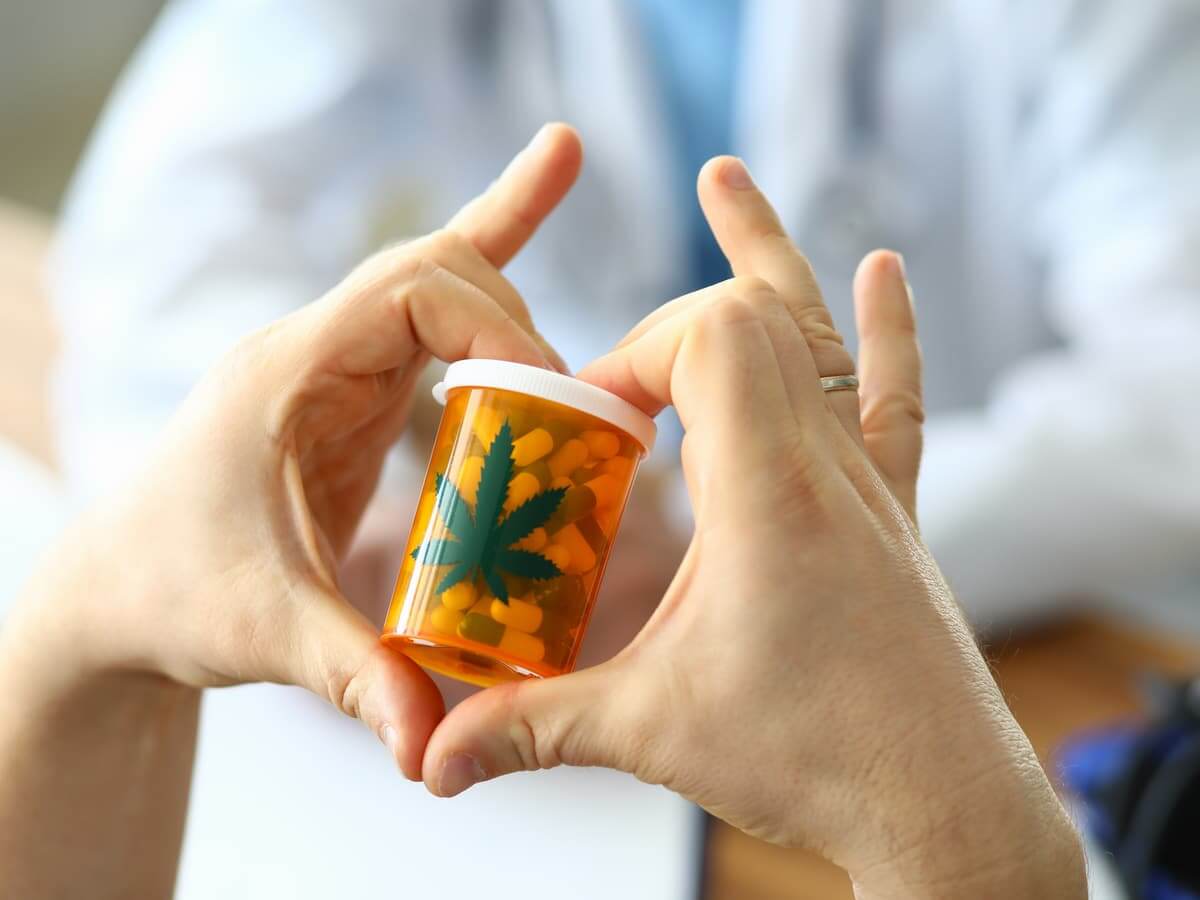Dealing with Traumatic Brain Injury (TBI) can be a challenging journey, not just for the patients but also for their loved ones. As a nurse who has seen the struggles and hopes of TBI patients, I want to share some comforting and promising news from the world of medical research, particularly about the role of cannabinoids in TBI management.
The Healing Potential of the Endocannabinoid System
Our bodies are amazing in their ability to heal and protect themselves. A key player in this process is the endocannabinoid system, a network of receptors and neurotransmitters that works like a caring guardian of our nervous system. This system, which includes natural compounds like anandamide (AEA) and 2-arachydonoyl glycerol (2-AG), along with receptors CB1R and CB2R, has shown a protective role in brain injuries. It’s like having a natural healing system within us, quietly working to maintain balance and protect our brain, especially after an injury.
Cannabinoids for Traumatic Brain Injury: Nature’s Gift to TBI Recovery
In our journey to find relief and healing for TBI, nature offers a helping hand through cannabinoids. These compounds, found in the cannabis plant, mimic the action of our body’s endocannabinoids and can be a source of comfort and healing.
THC (Tetrahydrocannabinol):
While THC is often known for its psychoactive effects, it’s also like a gentle whisper to the brain, helping to calm inflammation and improve behavioral outcomes in TBI. It’s important to remember, though, that everyone’s journey is unique, and THC’s effects can vary depending on factors like gender and the timing of its use.
CBD (Cannabidiol):
CBD is like a nurturing friend to our brain. It doesn’t have psychoactive effects, but it offers a multitude of benefits. It helps protect the brain’s delicate blood vessels, reduces harmful inflammation, and supports our cognitive functions, which can be affected by TBI.
Medical Marijuana: A Comprehensive Treatment for TBI
Medical marijuana, encompassing various cannabinoids, offers a holistic approach to TBI treatment. It represents a convergence of natural healing and scientific research, providing a multifaceted treatment option for those affected by brain injuries.
Neuroprotection: How Cannabinoids Safeguard the Brain
Cannabinoids have shown neuroprotective properties, potentially safeguarding the brain from further damage post-injury. This aspect of cannabinoid therapy is crucial in the quest for effective TBI treatments.
Cannabinoid Research in Neurology: Latest Findings
Recent advancements in cannabinoid research have provided significant insights into their potential role in neurology, particularly concerning Traumatic Brain Injury (TBI). This research is paving the way for new therapeutic strategies that could revolutionize TBI treatment.
Neuroprotective Properties:
Studies have increasingly suggested that cannabinoids possess neuroprotective properties. For instance, in preclinical TBI research, cannabinoids have been shown to mitigate brain damage and improve recovery outcomes. This is primarily attributed to their ability to modulate the endocannabinoid system, which plays a critical role in maintaining neural health and resilience.
CBD and Brain Injury:
Research focusing on Cannabidiol (CBD) has been particularly promising. Current studies indicate that the dosing and concentrations of CBD are crucial for therapeutic benefits in TBI cases. CBD’s effects on TBI suggest that it can significantly aid in reducing neuroinflammation and protecting against neurodegeneration, which are common consequences of brain injuries.
THC’s Role in TBI:
Alongside CBD, Tetrahydrocannabinol (THC) has also been studied for its impact on TBI. While THC is known for its psychoactive effects, research indicates that it may have therapeutic potential in managing TBI symptoms, particularly in reducing inflammation and aiding in cognitive and behavioral recovery. However, the effects of THC can vary based on factors like dosage, timing, and individual patient characteristics.
Combining THC and CBD:
Some studies are exploring the combined effects of THC and CBD in treating TBI. This combination might offer a synergistic effect, enhancing the neuroprotective and therapeutic outcomes. Clinical trials are looking into formulations that include both CBD and THC for their potential in concussion management.
Cannabinoids in Related Neurological Conditions:
Beyond TBI, cannabinoids are being researched for their efficacy in other neurological conditions that share similar pathologies, such as spinal cord injuries and stroke. These studies are crucial in understanding the broader implications of cannabinoid therapy in neurology.
Future Directions:
The field of cannabinoid research in neurology is rapidly evolving. Ongoing clinical trials and preclinical studies are expected to provide deeper insights into how cannabinoids can be effectively utilized in TBI treatment. There is a growing emphasis on understanding the optimal dosing, administration methods, and long-term effects of cannabinoid-based therapies.
This burgeoning area of research holds great promise for developing novel treatments that could significantly improve the quality of life for individuals suffering from TBI and related neurological conditions.
The Role of CBD Oil in Treating Traumatic Brain Injury
The exploration of CBD oil as a therapeutic agent for Traumatic Brain Injury (TBI) represents a significant advancement in the field of neurology. Derived from the cannabis plant, CBD oil has garnered attention for its potential neuroprotective and healing properties, making it a subject of interest for TBI treatment.
Neuroprotection and Recovery:
CBD oil is believed to offer neuroprotective benefits, crucial in the aftermath of a brain injury. Its properties may help in reducing inflammation and oxidative stress in the brain, two key factors that exacerbate the damage in TBI.
Managing Symptoms:
Patients with TBI often experience a range of symptoms including headaches, cognitive difficulties, and mood swings. CBD oil has shown promise in alleviating these symptoms, contributing to a more comfortable recovery process.
Promoting Neural Repair:
Emerging research suggests that CBD oil may promote the repair and regeneration of neural pathways damaged during injury. This aspect is vital for long-term recovery and the restoration of cognitive and motor functions.
Safety and Efficacy:
Unlike THC, CBD does not have psychoactive effects, making it a safer option for patients who are concerned about the mind-altering effects of cannabis. The safety profile of CBD oil, along with its potential therapeutic effects, makes it an appealing option for many.
Integrating with Traditional Therapies:
CBD oil can be considered as a complementary therapy alongside traditional TBI treatments. Its use in conjunction with rehabilitation exercises, cognitive therapy, and medication can offer a holistic approach to recovery.
Exploring Alternative Therapies for TBI
In addition to cannabinoids, various alternative therapies offer complementary benefits in TBI treatment. Integrating these therapies can provide a more holistic approach to recovery and rehabilitation.
- Physical Therapy and Rehabilitation: Physical therapy is a cornerstone in TBI recovery, helping patients regain strength, coordination, and balance. Tailored exercises and activities can also aid in retraining the brain and improving motor functions.
- Occupational Therapy: Occupational therapy focuses on enhancing daily living skills. For TBI patients, this can mean relearning basic tasks, developing new strategies to compensate for any cognitive and motor deficits, and using adaptive equipment to facilitate independence.
- Speech and Language Therapy: Communication challenges are common in TBI patients. Speech therapists work to improve speech, language, and cognitive-communication abilities, helping patients regain their ability to communicate effectively.
- Neuropsychological Therapy: This therapy addresses cognitive impairments such as memory loss, attention deficits, and executive dysfunction. Through cognitive rehabilitation exercises, patients can improve their mental functions, which is crucial for a successful return to work or school.
- Mind-Body Practices: Techniques such as meditation, yoga, and tai chi can be incredibly beneficial. They promote relaxation, reduce stress, and improve the overall mental well-being of TBI patients. Mindfulness practices, in particular, have been shown to aid in the management of emotional and behavioral challenges post-TBI.
- Nutritional Support and Supplements: Proper nutrition plays a critical role in brain health. Nutritional counseling and specific supplements, like omega-3 fatty acids, may support brain healing and function. However, it’s important to approach this under professional guidance.
- Art and Music Therapy: Engaging in art and music can be therapeutic for TBI patients. These therapies can enhance emotional well-being, provide a non-verbal outlet for expression, and even assist in the recovery of cognitive and motor skills.
- Acupuncture and Massage Therapy: These therapies can help in managing pain, reducing stress, and improving overall quality of life. Acupuncture, in particular, has been noted for its potential in aiding neurological recovery.
- Hyperbaric Oxygen Therapy (HBOT): Although still a subject of research, HBOT, which involves breathing pure oxygen in a pressurized room, has shown potential benefits in improving brain function and promoting healing in TBI patients.
- Support Groups and Peer Counseling: Joining TBI support groups or engaging in peer counseling can provide emotional support, shared experiences, and practical advice. This social support is invaluable in coping with the challenges of TBI recovery.
Integrating these therapies into a TBI patient’s treatment plan can provide a comprehensive approach that addresses the physical, cognitive, emotional, and social aspects of recovery. It’s important to remember that each TBI case is unique, and what works for one individual may not work for another. Therefore, a personalized treatment plan, developed in collaboration with healthcare professionals, is essential for the best outcomes.
Embracing a Future with Compassionate Care
As we explore the potential of cannabinoids in TBI treatment, it’s like stepping into a new realm of compassionate care. The research is still growing, and each study brings us closer to understanding how these natural compounds can be integrated into TBI care. It’s a journey of hope, where science meets nature, offering new possibilities for healing and recovery.
A Message of Hope and Caution
As a nurse, my message to TBI patients and their families is one of hope tempered with caution. The potential of cannabinoids in TBI care is a beacon of light, but it’s essential to navigate this path under the guidance of healthcare professionals. Each person’s experience with TBI is unique, and treatments should be personalized to meet individual needs.
Your Partner in Healing
Remember, you’re not alone in this journey. As healthcare providers, we’re here to support you, offering the best of our knowledge and the latest in medical research. Together, we can explore the potential of cannabinoids in TBI care, always keeping your safety and well-being at the heart of our efforts. For more information visit, getyouridcard.com or call a patient care advocate at 833-667-4665.










